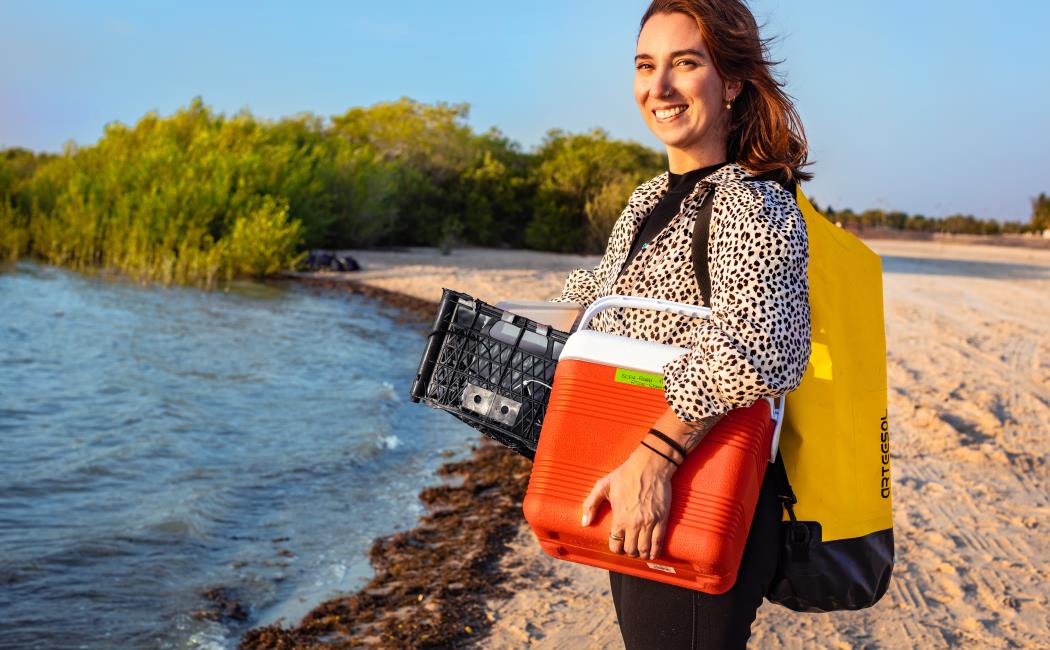
Where I work: Larissa Frühe
14 February, 2023
My work is probably best summarized as biodiversity assessment. I study marine ecosystems to evaluate their biodiversity using the DNA that I find there. At first glance, it may appear that there is nothing of interest in each small sample of sediment or vial of water that I collect. But, by analyzing the DNA in the samples, we can tell what species have been in that ecosystem.
Environmental DNA (eDNA) analysis is a relatively new technique that is improving rapidly. Every year, the datasets you can generate get bigger. Nowadays, you can even screen for unknown organisms that have a very low proportion of DNA in the sample. I love that I am a part of developing a method that can be applied across a huge range of habitats, from detecting newts in a river, to hunting giant squid in the Antarctic Ocean.
Since starting my postdoc, I have been at sea for five of the 10 months. At the beginning of 2022, we took part in an ambitious expedition: the Red Sea Decade Expedition. On the OceanXplorer research vessel, we used submarines and helicopters to get to literally every corner of the Red Sea. Being in a submarine, collecting samples, is my favorite type of fieldwork.